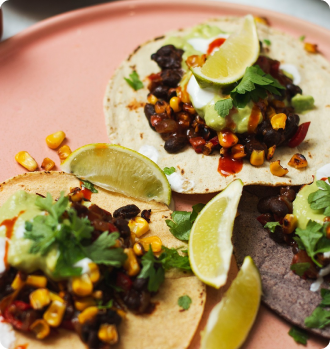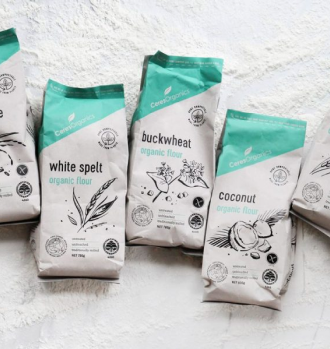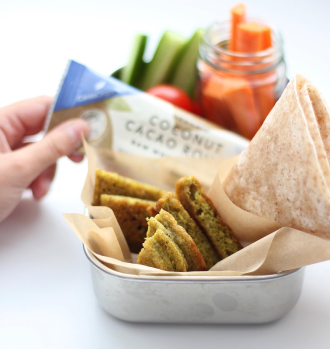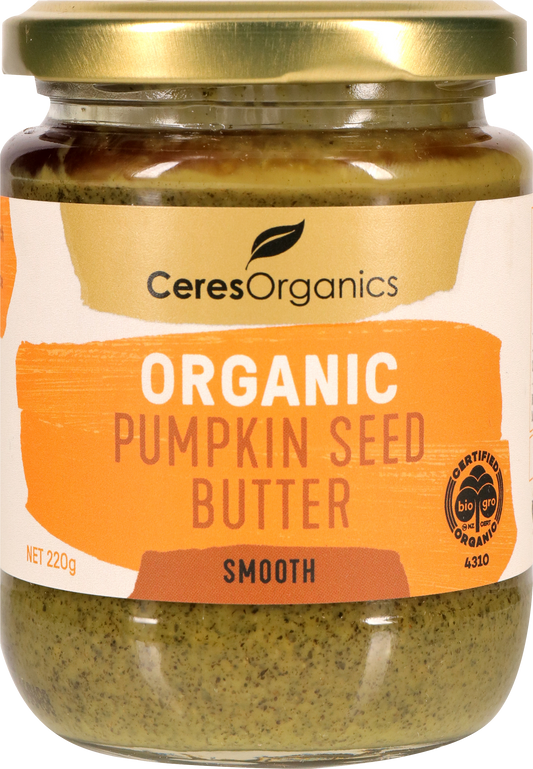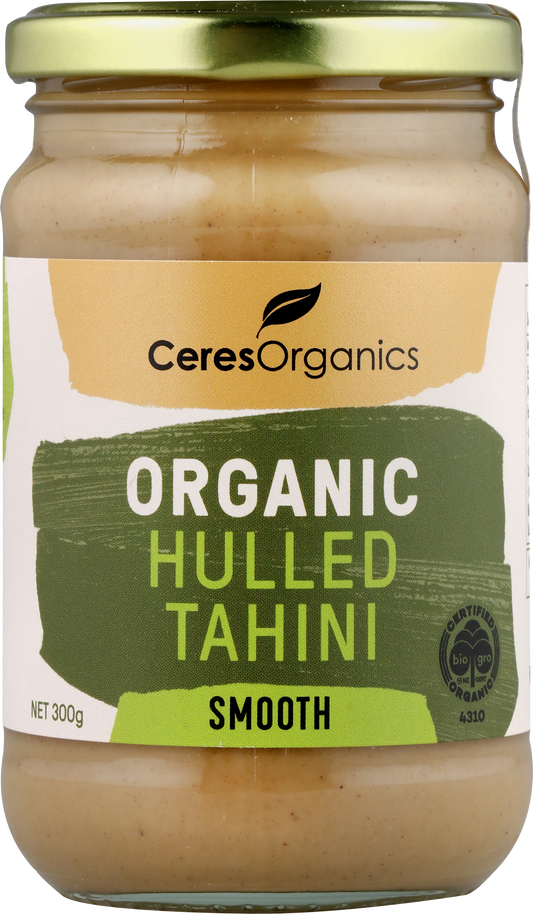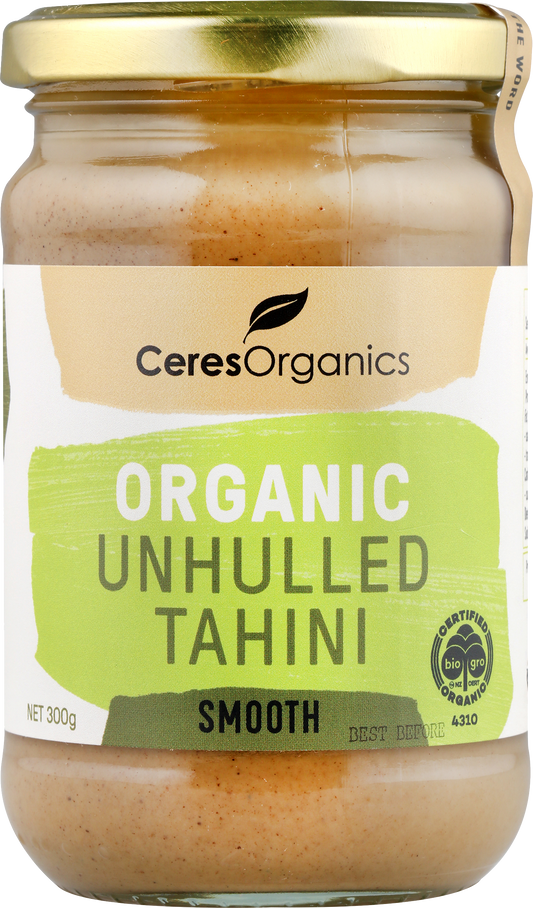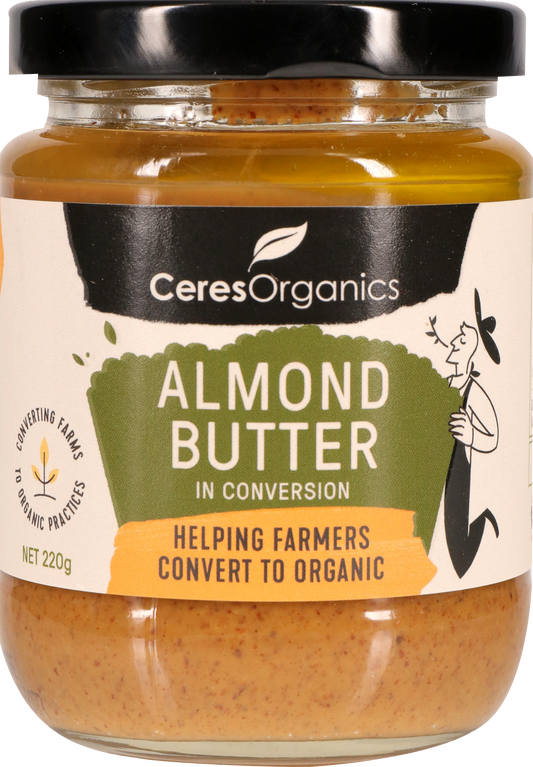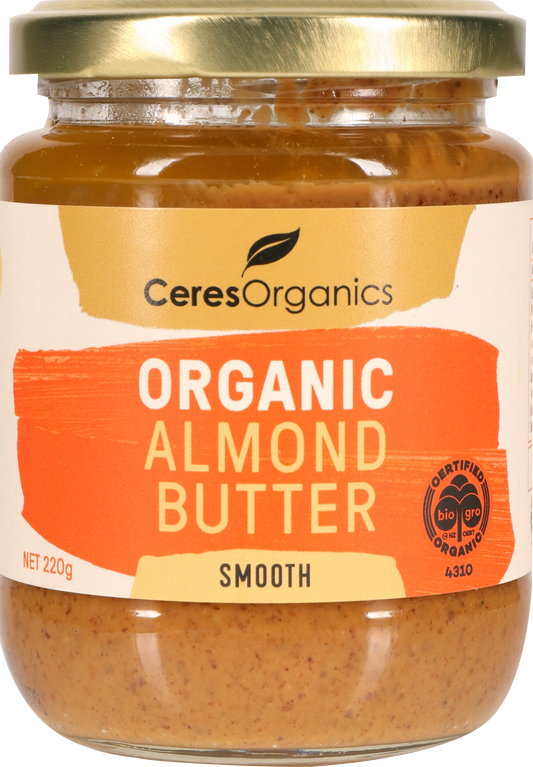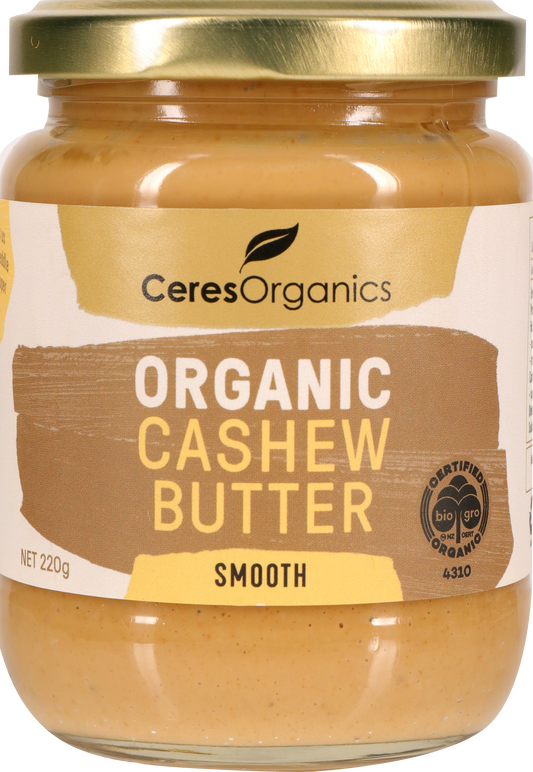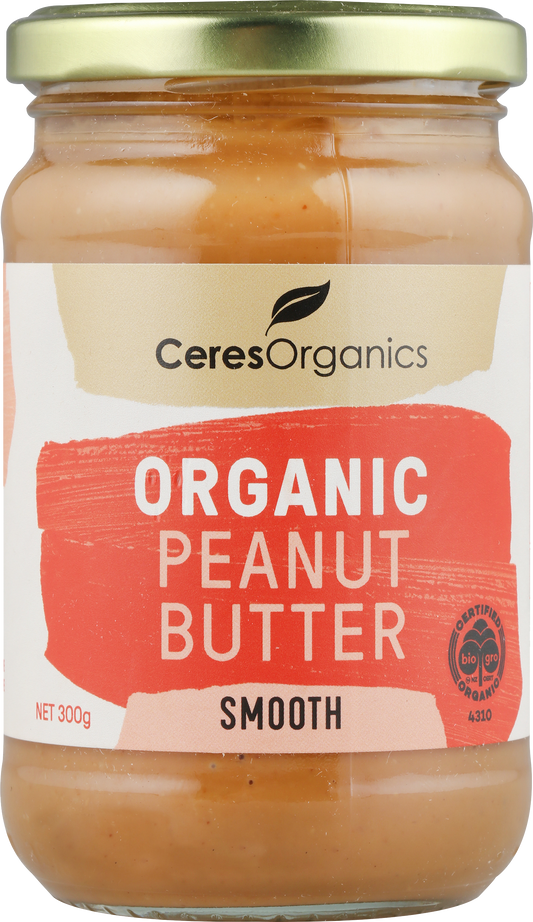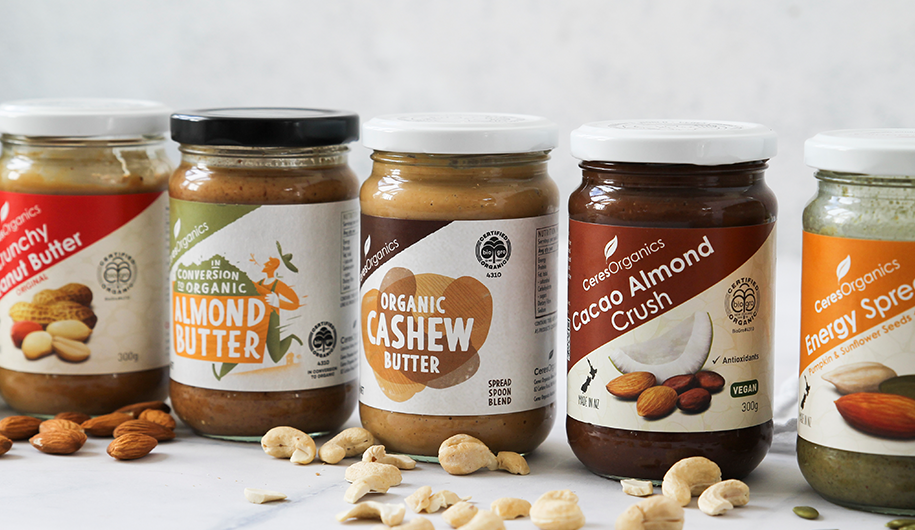
Heck yes nut butters can be a great addition to any diet! But like all things, it depends. Read your labels. Some are best left on the shelf.
Check your labels
Highly processed foods are going to have a ton of other ingredients, like added oils, sugars and preservatives. High-quality nut butters made without added sweeteners or preservatives have nutrient profiles similar to the nuts from which they’re made.
On average, two tablespoons of nut butter will provide you with about 400 kJ energy and 10 grams fat, mostly unsaturated fat, the kind that is good for your heart. Nut butters will also provide you with somewhere between four and seven grams of protein, depending on the type of nut butter.
So buying organic, minimally processed nut butters made from just the whole food actually makes a good addition to your pantry.
Natural vs. organic
Let’s look at what is probably the most popular nut butter, peanut butter. Natural peanut butter normally has only two ingredients: peanuts and salt, that’s all. This definition does not include peanut butters you’ll find on supermarket shelves with ingredients like vegetable oils, which are often hydrogenated or partially-hydrogenated, and sugar stabilisers.
Natural also does not mean the peanuts are organic. They are not! They could have been subjected to chemical sprays and fertilisers and might be highly processed. Real natural butter should be minimally processed such that the nuts are close to their natural whole food state.
Lastly, natural peanut butter normally separates, where the naturally-occurring peanut oil floats on top.
Peanut and pesticides
Peanuts are actually legumes and grow underground. They have shells that are soft and porous, so all those chemical pesticides sprayed on the ground or onto the crop after harvest can penetrate the shell and reach the nut within.
Pesticides and chemicals can be very concentrated in peanuts, not just because of their porous shells but because fat is very good at absorbing toxins. So you might think you’re eating a healthy food but in reality you’d also be eating toxins.
No worries if you’re eating organic peanut butter, you’ll be nourishing your body with fibre, vitamin E, potassium, folate, zinc and magnesium. For a quick carb fuel up, slice up an apple and spread it with 1 to 2 tablespoons of organic peanut butter.
Almonds and pesticides
So what about almonds? Almonds are having a moment right now. Between the lactose intolerant, vegans and hipsters, almond milk has become almost mainstream. But many toxic pesticides are also used on almond trees.
California grows 80 percent of the world’s almonds and, unless you’re buying organic ones, these are the pesticides that are used on almond trees. That said, if you’re eating organic almond butter, you won’t be consuming the chemicals found in conventional almond butter.
Almonds are a really good source of vitamin E, an antioxidant that scavenges and neutralises free radicals in your body, preventing them from causing damage. Almond butter also contains important minerals like magnesium and calcium that are both important for your bone health. Boost the nutrition of your overnight oats or smoothie bowls by adding a couple of tablespoons of almond butter in them.
Cashews, endosulfan and human suffering in India
Endosulfan, an organochlorine pesticide and known endocrine disruptor and neurotoxic agent, has been widely used on non-organic cashew plantations. It is both highly toxic to humans and animals.
India, the third largest producer of cashews globally had for years blocked the ban on endosulfan, a globally accepted toxin banned in most countries.
Just recently, the Indian government changed its position, finally acknowledging the hazards of endosulfan which has caused enormous human suffering in Kerala and Karnataka where it has been sprayed over cashew plantations. Endosulfans will be phased out by 2017.
This ban comes after 20 years of aerial spraying on cashew plantations that has left many with mental and physical disorders and other serious health issues.
Organic cashews are not grown with poisonous chemicals. Organic cashew butter contains super high levels of nutrients including protein, unsaturated fats, vitamins and important minerals such as phosphorus, copper, iron and magnesium.
So yes, absolutely, organic nut butters cost more than non-organic nut butters. However, you’re not paying for the human suffering and environmental damage resulting from the commercial mass production of conventional nuts. Eat positively for yourself, others and the environment where possible.

